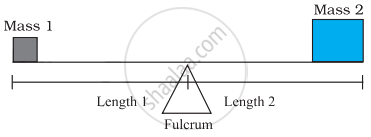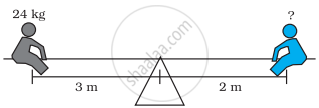Advertisements
Advertisements
प्रश्न
The cost of 18 chairs is Rs 22770. How many such chairs can be bought for Rs 10120?
उत्तर
Number of chairs that can be bought for Rs 22770 = 18
Number of chairs that can be bought for Re 1 = `18/22770`
Number of chairs that can be bought for Rs 10120 = 10120 × `18/22770 = 182160/22770 = 8`
APPEARS IN
संबंधित प्रश्न
If x, y, z are in continued proportion, prove that `(x + y)^2/(y + z)^2 = x/z`
If y is the mean proportional between x and z, prove that: `(x^2 - y^2 + z^2)/(x^(-2) - y^(-2) + z^(-2)) = y^4`.
What number should be subtracted from each of the numbers 23, 30, 57 and 78 so that the remainders are in proportion ?
Determine if the following numbers are in proportion:
7, 42, 13, 78
Find the value of x in each of the following proportions:
51 : 85 : : 57 : x
The length and breadth of a rectangular field are in the ratio 5 : 4. If the width of the field is 36 m, what is its length?
If `a/c = c/d = c/f` prove that : `(a^3 + c^3)^2/(b^3 + d^3)^2 = e^6/f^6`
If `a/c = c/d = c/f` prove that : `(a^2)/(b^2) + (c^2)/(d^2) + (e^2)/(f^2) = "ac"/"bd" + "ce"/"df" + "ae"/"df"`
If b : a = c : d, then a, b, c, d are in proportion.
Unequal masses will not balance on a fulcrum if they are at equal distance from it; one side will go up and the other side will go down.
Unequal masses will balance when the following proportion is true:
`("mass"1)/("length"2) = ("mass"2)/("length"1)`

Two children can be balanced on a seesaw when
`("mass"1)/("length"2) = ("mass"2)/("length"1)`. The child on the left and child on the right are balanced. What is the mass of the child on the right?

